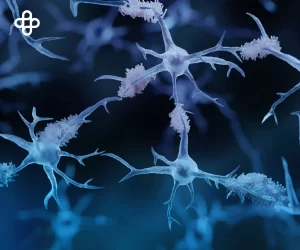Prostate inflammation treatment. Prostate inflammation can cause discomfort and urinary issues. Learn about conventional treatments, medications, and the latest advances in regenerative medicine.
Medical Treatment for Prostate Inflammation
If a bacterial infection causes prostatitis, antibiotic treatment is necessary for approximately three weeks. This extended duration is required because the prostate is highly susceptible to bacterial colonization, making it challenging to eliminate infections once they take hold.
However, the most effective approach to prostate health is prevention. Maintaining healthy lifestyle habits is the best way to avoid prostate inflammation. Check out our article on “Preventing Prostate Inflammation” for more insights.
Once inflammation has developed, the appropriate treatment depends on the underlying cause and should only be administered by a specialized healthcare provider.

Conventional Medical Treatments for an Inflamed Prostate
Prostate inflammation is typically managed with medications, and in severe cases, surgery may be required.
1. Medications for Prostatitis
- Firstly, Antibiotics are essential for treating bacterial prostatitis by eliminating the infection.
- Secondly, Nonsteroidal anti-inflammatory drugs (NSAIDs): Pain relievers like ibuprofen or aspirin help reduce inflammation and discomfort.
- Thirdly, Alpha-blockers: These medications relax the prostate and bladder muscles, improving urine flow. However, they are not effective for all men.
2. Surgical Intervention
Surgery is considered when medications fail to resolve prostatitis and the prostate remains significantly inflamed. The procedure involves removing part of the prostate gland, which may lead to fertility issues or retrograde ejaculation (where semen flows into the bladder instead of exiting through the urethra).
Stem Cell Therapy for Prostate Inflammation
A promising alternative to conventional treatments is stem cell therapy, which focuses on cellular regeneration. This therapy uses specialized stem cells that directly target and repair damaged or weakened prostate cells, enhancing their function and reducing inflammation.

Benefits of Stem Cell Therapy for Prostatitis
- Improves urinary flow, reducing difficulty in initiating urination.
- Reduces frequent nighttime urination (nocturia).
- Prevents post-urination dribbling.
- Stimulates prostate cell regeneration, decreasing inflammation.
- Enhances erectile function and improves ejaculation.
- Alleviates pain in the lower back, pelvis, or abdomen.
A Future of Regenerative Medicine in Urology
In conclusion, Stem cell research continues to evolve, offering new hope for patients suffering from chronic prostatitis and other urological conditions. If you’re interested in the latest advancements in stem cell therapy for prostate inflammation, read our article “Stem Cells and Prostate Inflammation.”
Finally, for healthcare professionals seeking in-depth research, we recommend the article “Stem Cells and Regenerative Medicine in Urology“ from the Urology Department of Hospital Universitario Doctor Peset.





